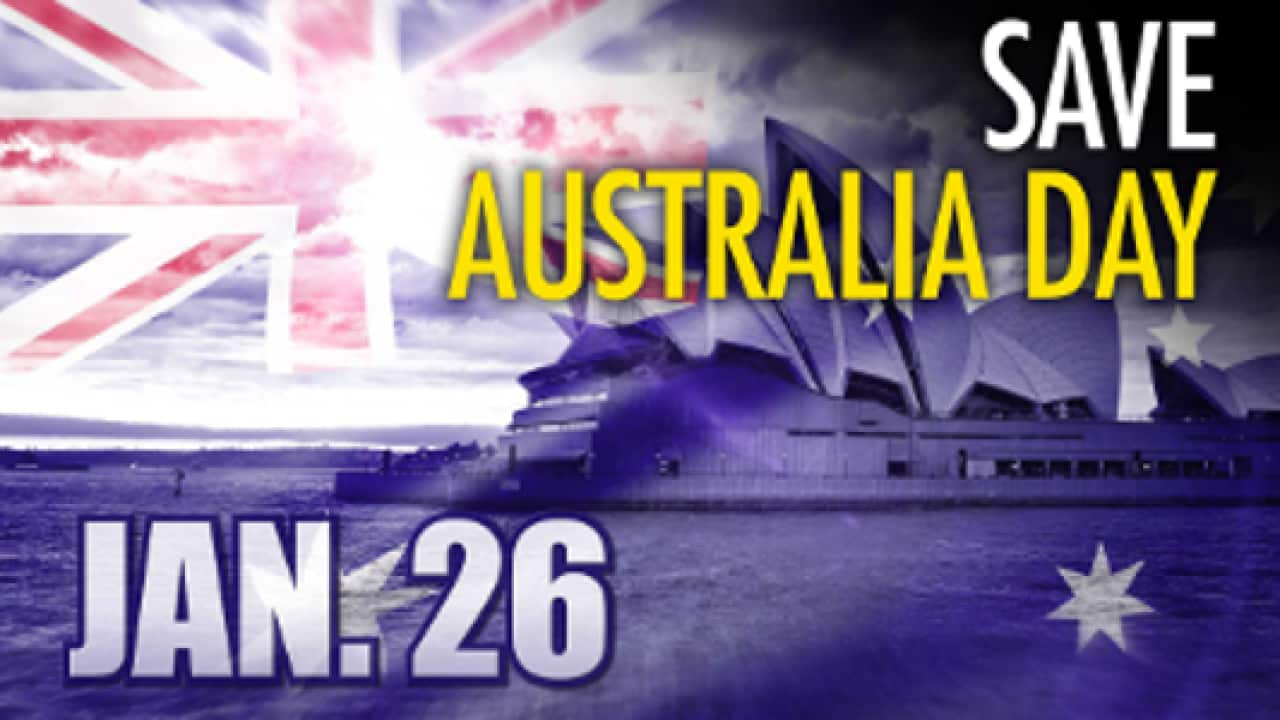Prime Minister Malcolm Turnbull said those wanting to change to date of Australia Day were dividing the nation.
"I'm disappointed by those who want to change the date of Australia Day, seeking to take a day that unites Australia and Australians and turn it into one that would divide us," Mr Turnbull said in a Facebook video.
"Australia Day is a day to come together and celebrate what unites us, what inspires us, what gives all of us reason to be proud that we are Australian."
Mr Turnbull said he recognises the history of European settlement has been complex and tragic, but above all, he thinks we should be celebrating the achievements of Australians.
"A free country debates its history, it does not deny it," he said. "It builds new monuments as it preserves old ones, writes new books, not burn old ones."
His message comes as Greens leader Richard Di Natale said his party would prioritise changing the date with a major campaign to abandon January 26.
"We have a day on January 26 that marks the commemoration of the arrival of the First Fleet and it's a day that represents an act of dispossession, an act of theft," he said.
"It's a day that represents the beginning of an ongoing genocide, the slaughter of so many Aboriginal people."
While Opposition Leader Bill Shorten has remained silent on the matter, Indigenous Labor MP Linda Burney told NITV News January 26 is not a day that everyone celebrates.
“The 26th of January means many things to many Australians. We understand that Australia Day can be a difficult and painful day for many First Australians," she said.
“There is much for us to celebrate about this great country. But you cannot ignore the fact that the date of 26 January is problematic. It marks the usurpation of Aboriginal sovereignty. I’m not sure this ought to be the most defining moment in our nation’s history."
Despite this, Ms Burney says she doesn't think the date of Australia Day will change for a long time.
“I don’t see the date of Australia Day changing any time soon, and I don’t propose changing it. I think above all else, Aboriginal people are most concerned about the more concrete issues that affect their lives – like, jobs, housing, healthcare and education.”
First Australians have 'bigger issues to worry about'
Many commentators who oppose changing the date of Australia Day argue that doing so 'misses the point' and would do little to improve the lives of Indigenous Australians.
The Prime Minister's Australia Day video was released just hours after it had been reported that finding solutions to the issues facing Indigenous Australians would be a key focus at a meeting with his state and territory counterparts next month.
The first full Council of Australian Governments meeting, since June last year, will receive advice on work to refresh the Close the Gap agenda.
In December, the government released a discussion paper asking for public comment on the next phase of the Closing the Gap initiative, which began 10 years ago under the Rudd government in a bid to improve education, health and other outcomes.
It comes after the ninth Closing the Gap report, released in February last year, showed widespread failure to meet targets.
Australian mainstream media have been widely reporting on comments made by Alice Springs councillor Jacinta Price and high-profile Indigenous commentator Warren Mundine who say Aboriginal people in remote communities have bigger issues to worry about.
"I'm with Aboriginal communities every month and changing the date isn't number one, two, three, four, fifth on their agenda," Mr Mundine said.
"It is education, jobs, it is to get business activity happening, and to get better healthcare. If the Greens were fair dinkum they would concentrate on these issues rather than something that is not going to make a difference to anyone," he said.
But journalist Amy McQuire has criticised their stance and criticised the media for preferencing Indigenous voices over others.
Writer and actor Nakkiah Lui said changing the date and other issues, like the disadvantange of remote communities, are two separate matters that need to be addressed individually.
- with APP











